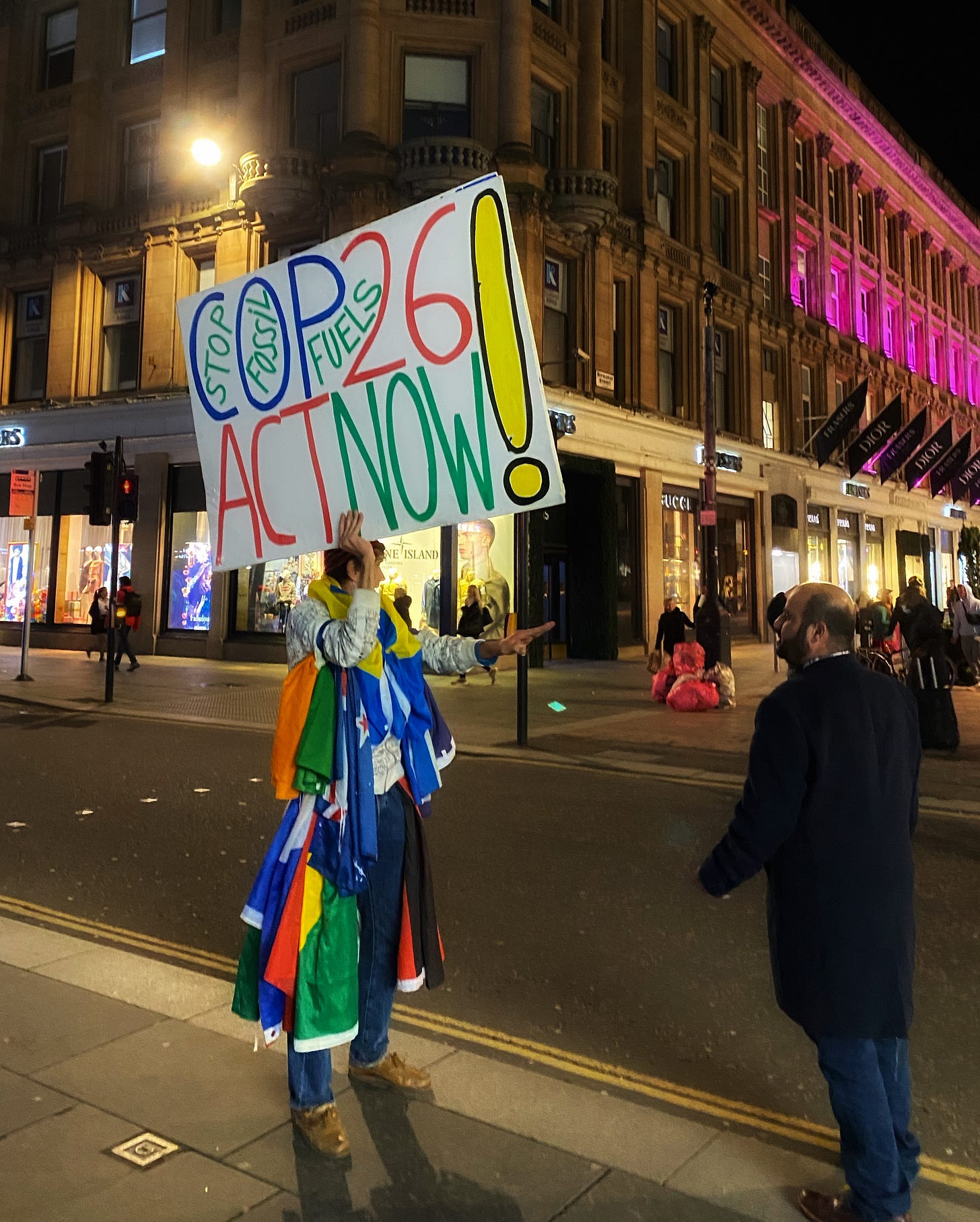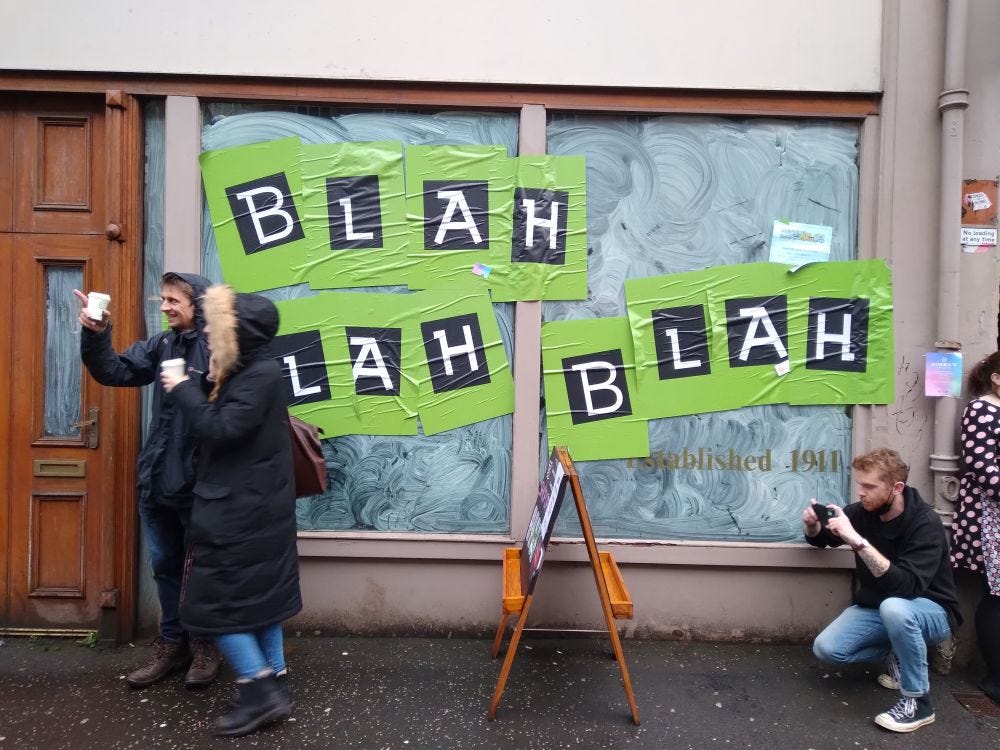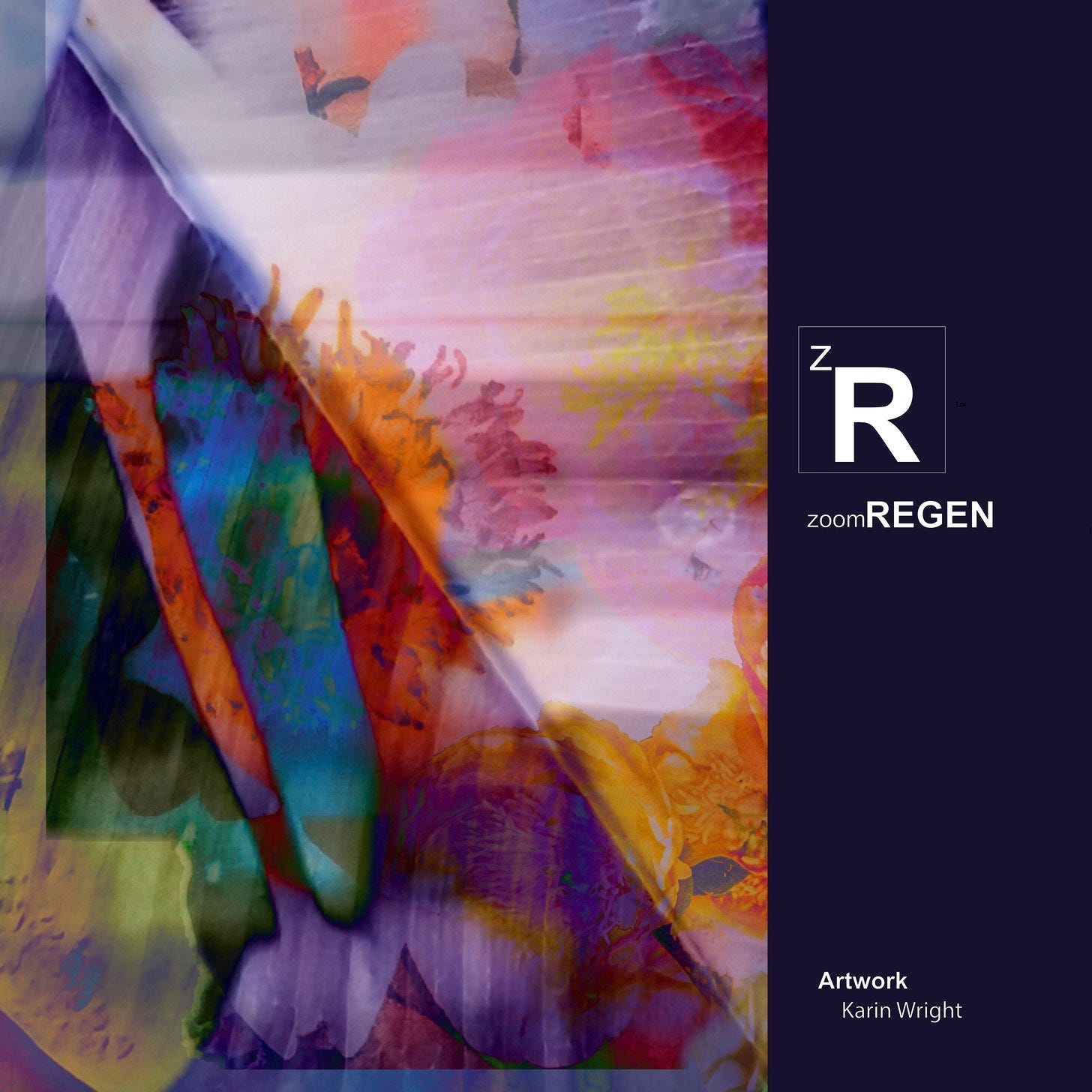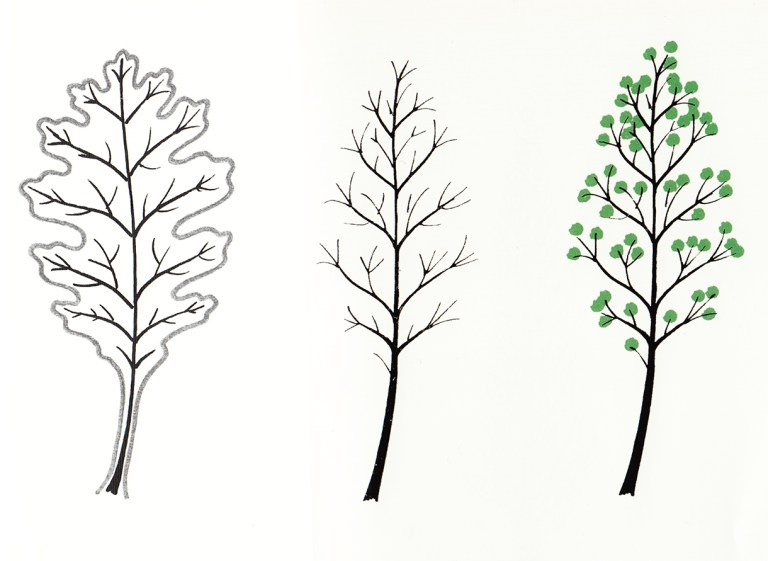Midway through the second week of COP26, and ahead of the outcome from negotiators behind the closed blue zone doors, this edition of Regen Notes reflects on COP so far.
Real Zero
If there is one thing I am seeing time and time again, and perhaps a key takeaway from COP is the replacement of net-zero with true zero or preferably Real Zero. We cannot continue to set targets and programmes for carbon reduction needs today, by balancing offset approaches that haven’t been proven (tech) or will not deliver for years into the future (trees).
"We have created a language of confusion around sustainability that enables many to hide behind to greenwash or greenwish, and opens the door for many to use the confusion to their end"
“They are trying to sell net zero as a Cop26 success, but it is nothing more than the next more sophisticated phase of climate denial to protect business as usual. It’s mitigation denialism,” said Scott Tully from Glasgow Calls out Polluters.
Revealed by the Guardian that if the fossil fuel industry were a country they have the largest contingent and negotiating power at COP. Perhaps consequently, word on the first COP draft doesn’t look good according to Greenpeace.
“Talking about climate change in terms of fossil fuels is a Eurocentric perspective, it should be viewed through a human rights lens which recognises that everyone has the right to thrive, not just survive,” said Yvonne Blake, social justice advocate at Migrants Organising For Rights and Empowerment (More) in Glasgow – a dispersal city for refugees and asylum seekers in the UK.
Rob Hopkins has a brilliant blog round up, one that demonstrates the vast amount of activity and activism on the streets and fringe events in Glasgow. Reflections on tsunamis, determination and a week in Glasgow
A survey reported in the Guardian suggests that whilst we get the need to act and we get the climate emergency the majority think they are doing enough, doing more than others and more than their local communities, councils and governments. Few willing to change lifestyle to save the planet, climate survey finds
Recent articles in the Telegraph focus on the financial aspects arising from COP< and that we are more little to act and change lifestyles to protect our investments than we are to protect the life prospects of our children or grandchildren. The Standard reports that Companies that do not go green ‘will become collateral damage of net zero’
The second week at COP sees a build-up to the Built Environment day on the 11th of November. Yet still, the focus is on net zero, low carbon materials and projects which is claimed by many as being not enough. We need to lift our sights to the big picture, and dramatically reduce the amount we build in wealthier societies, especially commercial real estate, to allow for growth in infrastructure and shelter in low-income societies and communities
Regenerative COP
Our Living Future Masterclass held on the 10th looked at COP issues through a regenerative lens, with a stellar group of guests and masterclass cohorts.
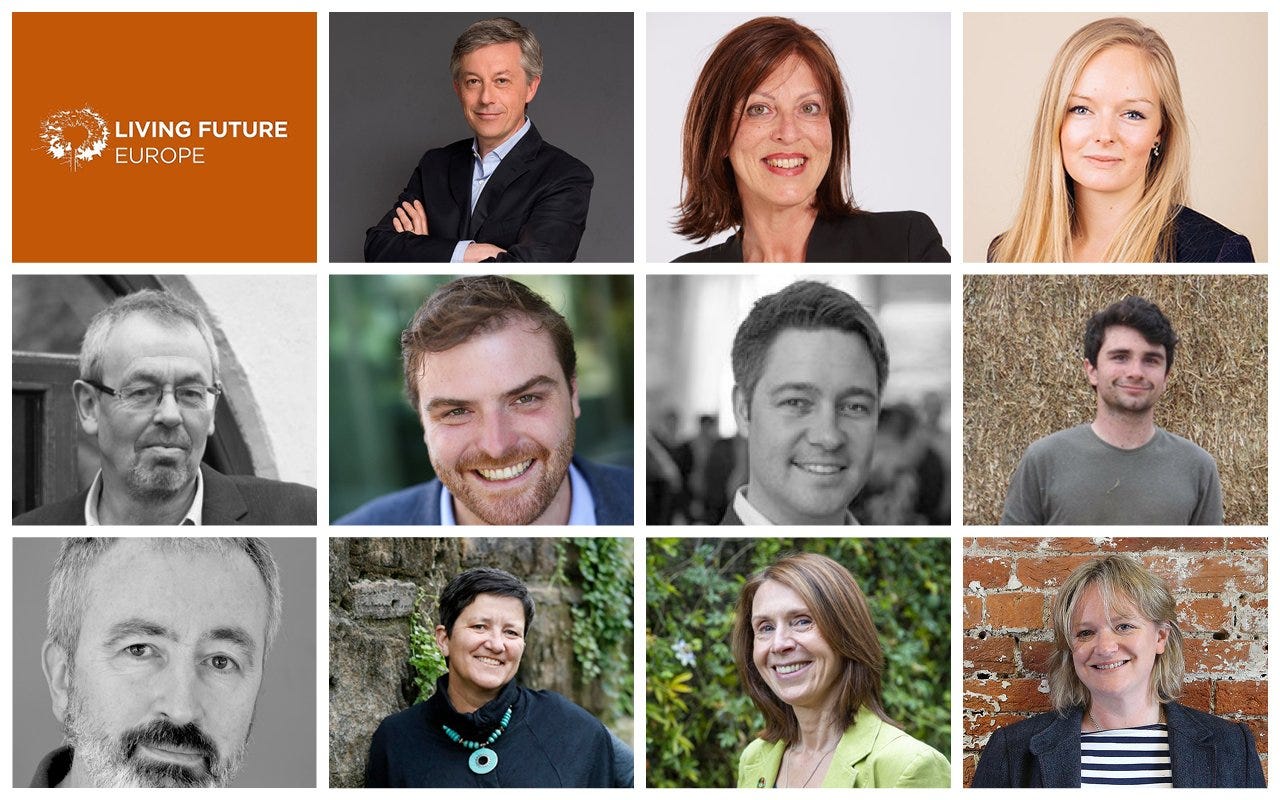
More on this event and built environment day ay COP in the next edition of Regen Notes.
Cascading Benefits
Other than the question ‘what is regenerative’, I see little coming from COP that looks beyond the problems to the regenerative potential of a world in a 1.5 Deg C Future. One exception is the Project Drawdown team ‘Cascading benefits: How today’s system of climate solutions can help bring about a regenerative future for all’
Zoomed Regenerative
Making regenerative sense of COP is the topic for our next Zoom Regenerative session on the 16th of November.
Wonder
In all the focus on carbon, fossil fuels, geoengineering and negative technologies are we losing the sense of wonder, of the world we live in, arguably the essence of why we are seeking to ‘heal the future’? Enjoy this beautiful meditative piece from Maria Popova, with a focus on the art of drawing trees. Drawing a Tree: A Vintage Italian Meditation on the Existential Poetics of Diversity and Resilience Through the Art and Science of Trees
Almost everywhere a seed falls, a new tree will grow.
In an oak leaf’s “network of nerves,” Bruno Munari finds a miniature of the entire tree’s branching pattern. This resemblance, of course, is what fractals explain — the leaf at the tip of the branch at the side of the trunk is just the finest extension of the fractal structure. How wonderful are fractals, the essence of emergence in complexity theory, regenerative thinking and biophilia.
About Regen Notes
Regen Notes is a newsletter of regenerative news, stories and more, with a sideways focus on the built environment, curated by Martin Brown. It is a companion to Zoom Regenerative where we join the regenerative dots through events, podcasts and support.




